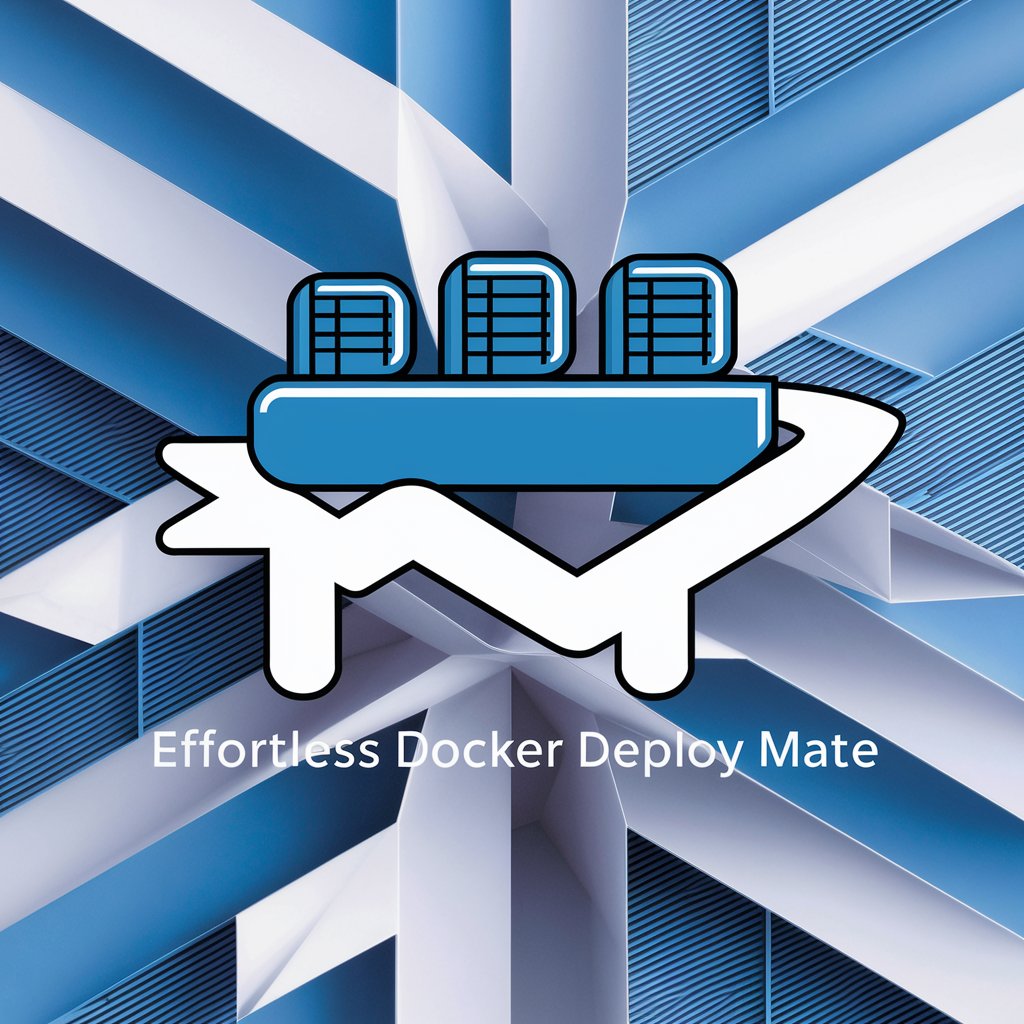KubeCluster Orchestrator 🌐🔧 - Kubernetes Cluster Automation

Hello! How can I assist you with your Kubernetes orchestration today?
Automate Kubernetes with AI Power
How can I optimize my Kubernetes cluster for better performance?
What are the best practices for managing Kubernetes deployments?
Can you help me troubleshoot a Kubernetes node issue?
How do I set up a Kubernetes monitoring and alerting system?
Get Embed Code
Introduction to KubeCluster Orchestrator
KubeCluster Orchestrator is designed as an advanced AI tool aimed at simplifying the management, deployment, and scaling of containerized applications using Kubernetes. It functions as a sophisticated layer atop Kubernetes, providing users with an intuitive interface and automation capabilities to streamline Kubernetes operations. By abstracting the complexities involved in cluster management, KubeCluster Orchestrator facilitates easier deployment of applications, efficient scaling, and seamless monitoring. For instance, a common scenario involves automatically scaling application instances based on traffic demands, ensuring optimal resource utilization without manual intervention. Powered by ChatGPT-4o。

Main Functions of KubeCluster Orchestrator
Automated Deployment
Example
Automatically deploying a web application across multiple environments (development, staging, production) with minimal configuration.
Scenario
A software development team uses KubeCluster Orchestrator to automate the deployment process of their application, significantly reducing the time and potential human errors associated with manual deployments.
Auto-Scaling
Example
Dynamically adjusting the number of running instances of an application based on real-time traffic analysis.
Scenario
An e-commerce platform experiences variable traffic, with spikes during sales events. KubeCluster Orchestrator automatically scales the platform's resources up during high traffic and scales down during low traffic periods, optimizing cost and performance.
Monitoring and Health Checks
Example
Continuously monitoring the health of all deployed services and automatically restarting or repairing unhealthy containers.
Scenario
An online service relies on KubeCluster Orchestrator for 24/7 monitoring. When a service component fails, the orchestrator swiftly identifies the issue and restarts the service, minimizing downtime and maintaining a reliable user experience.
Ideal Users of KubeCluster Orchestrator Services
Software Development Teams
Teams looking to streamline their development and deployment processes will find KubeCluster Orchestrator invaluable. Its automation and management capabilities reduce the complexity of using Kubernetes directly, allowing developers to focus more on coding and less on deployment issues.
IT Operations and DevOps Teams
These professionals require tools that can provide reliability, scalability, and efficiency in managing cloud-native applications. KubeCluster Orchestrator offers them a way to efficiently manage clusters, automate routine tasks, and ensure high availability of services.
Businesses Embracing Digital Transformation
Companies undergoing digital transformation and looking to adopt cloud-native technologies will benefit from KubeCluster Orchestrator. It simplifies the adoption of Kubernetes, enabling faster innovation cycles and a scalable, resilient infrastructure.

How to Use KubeCluster Orchestrator
1
Start by visiting yeschat.ai to access a free trial instantly without the need for login or a ChatGPT Plus subscription.
2
Explore available features and documentation to understand how KubeCluster Orchestrator can be integrated into your projects.
3
Set up your environment by following the provided guidelines for installation and configuration, ensuring compatibility with your systems.
4
Deploy your first cluster using the Orchestrator, utilizing the platform's tools for monitoring and management to ensure optimal performance.
5
Take advantage of community resources and support for troubleshooting, advanced configurations, and optimization tips to enhance your experience.
Try other advanced and practical GPTs
🛒 Magento Mastermind E-commerce Helper 🛍️
Empowering Magento Stores with AI

🔍 Git Guardian Bot 🛠️
Streamlining Git collaboration with AI

🤖✨ Ansible Automation Assistant 🔄🔧
Automate IT with AI-powered Ansible guidance.

🛠️ CAD Master: SolidWorks 3D Design Pro
Empowering Your Designs with AI

🏗️ Revit BIM Master Assistant 📐
Empowering BIM projects with AI

🧠 MATLAB Genius Simulation Assistant
Empowering MATLAB Users with AI

🐳 Effortless Docker Deploy Mate 🛠️
Simplify Docker deployments with AI-powered guidance.

🤖✨ Slack SuperBot Workflow Wizard 🧙♂️✨
Automate Slack, Enhance Collaboration

🔩 Creo Parametric Design Assistant 🛠️
Empower Your Creo Designs with AI

Efficient HR Assistant 🧑💼📋
Streamlining HR tasks with AI power

🏥 Epic Health Record Navigator GPT
AI-powered Epic Systems Guidance

📊 Tableau Wizard Assistant 🧙♂️
Empower your data stories with AI.

KubeCluster Orchestrator FAQs
What is KubeCluster Orchestrator?
KubeCluster Orchestrator is an AI-powered tool designed to streamline the management and deployment of Kubernetes clusters, making it easier for users to automate and optimize their cloud infrastructure.
How can I integrate KubeCluster Orchestrator into my existing workflow?
You can integrate KubeCluster Orchestrator by using its API or CLI tools to connect with your existing CI/CD pipelines, enabling seamless deployment and management of Kubernetes resources.
What are the main benefits of using KubeCluster Orchestrator?
The main benefits include simplified cluster management, automated scaling, improved resource utilization, and enhanced security features, all aimed at optimizing cloud operations.
Does KubeCluster Orchestrator support multi-cloud environments?
Yes, KubeCluster Orchestrator is designed to support multi-cloud environments, allowing users to manage Kubernetes clusters across different cloud providers from a single interface.
What kind of support and resources are available for KubeCluster Orchestrator users?
Users have access to a comprehensive documentation library, community forums, and dedicated support for troubleshooting and advice on best practices.
